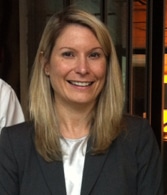Summary
The true chemical composition of a sample is important for understanding what type of compounds are present. Multiphase samples are often made up of various compounds, and some of the elements within each compound are shared across more than one phase. For example, in geological samples, Oxygen is often associated with simple Silicates, and Oxygen is also associated with more complex Aluminosilicates. Mapping the true Atomic percentages of elements in a large scan area reveals the detailed nature of the elements and compounds present.
A compositional map scan will show the distribution of compounds present from which formulas can be interpreted. When adding the additional benefit of reference spectrum libraries, each compound can be matched against a known standard material. The result is that each phase of the multiphase material is conclusively identified with a known compound formula.
In this webinar, we will explore how quantitative maps are used for understanding the distribution of phases in a map set, and then further analyze the map results with the power of a known standards library.
Speakers

Tara Nylese
Global Applications Manager
EDAX
Tara Nylese is the EDAX Global Applications Manager, based in the Mahwah office. Tara works with EDS, EBSD and WDS technologies. She started her career in microanalysis primarily with SEM/EDS based techniques and over the course of her 17 years with EDAX has added the additional capabilities into her analytical approaches. With a strong understanding of core technologies, Tara takes the advanced technologies in novel directions, externally with customers and internally within various EDAX groups. Her main emphasis is on finding ways to increase the integration between techniques to create solutions that are beyond the limit of each individual technique. Of particular interest are applications of phase mapping and how to fully characterize materials with subtle differences, to create a high level of materials characterization.
Tara holds a Master’s degree in Chemistry with a Professional Science Masters (PSM), which gives her an understanding of the commercial end of applied science and technology. With a foundation in chemistry, she is able to adapt to many different applications, from excitation techniques to diffraction techniques and in industry from biological to materials science to geology.